
For many, the liver is thought to be an organ that primarily aids in alcohol consumption and digestion—but it’s so much more than that. This vital organ is a true workhorse, quietly performing an astonishing array of functions crucial for our overall health and well-being. It’s time we give it the attention and care it deserves, starting with what we choose to fuel our bodies with.
The Centers for Disease Control notes that the liver is “one of the largest and most important organs” and that it does a multitude of incredibly essential tasks to keep our bodies running smoothly. From filtering out waste products to processing food, alcohol, and medicine, its role is indispensable. Hopkins Medicine further states that the liver holds about a pint of the body’s blood supply “at any given moment,” and produces bile, which helps to regulate dietary processes and remove waste products. Beyond these, the liver also helps to balance the body’s chemical levels and processes and is said to do more than 500 varying functions to help support your body. Truly, it’s an organ MVP working tirelessly behind the scenes.
Clearly, the liver’s extensive duties underscore why it’s so important to keep it as healthy as possible. The American Liver Foundation emphasizes that regular exercise, eating a balanced diet, avoiding toxins, and getting proper vaccinations are all healthy practices that can help keep your liver functioning properly. When it comes to your diet, the Foundation specifically recommends eating plenty of fruits and veggies, fiber-rich whole grains, poultry, and fish. However, just as important as what we should eat is what we should consciously avoid. Unfortunately, when it comes to snack foods that can harm your liver, there are indeed many to be mindful of. We will now explore some of the worst offenders, according to research.

1. **Sugary Beverages (e.g., Soda)**
This one shouldn’t come as a surprise to anyone who understands the foundational principles of healthy eating. Healthline notes that anything packed with an abundance of sugar is a good thing to avoid when it comes to protecting your liver health. Sugary beverages, particularly common sodas, stand out as prime examples of this dietary pitfall, presenting a multifaceted challenge to the liver’s optimal function.
Soda epitomizes some of the myriad issues with foods that cause liver damage. It’s not just the high sugar content that’s problematic; these drinks often contain artificial chemicals, flavorings, and additives that further complicate the liver’s already extensive workload. Even if it’s a diet or caffeine-free variety, the presence of these synthetic compounds can still pose a significant burden on the organ responsible for detoxification and processing.
The liver is constantly working to filter out waste products and process everything we ingest. When it’s inundated with an overload of simple sugars, it has to convert this excess into fat, a process that can contribute to fatty liver disease over time. The constant processing of artificial chemicals and additives diverts the liver’s energy from its other critical functions, impacting its ability to balance the body’s essential chemical levels and processes effectively.
These beverages also stand out due to their profound lack of any substantial nutritional benefits. They offer empty calories that contribute to overall caloric intake without providing the vitamins, minerals, or fiber that the liver needs to support its more than 500 varying functions. This absence of beneficial nutrients means the liver is working harder without receiving the necessary support to maintain its health and efficiency.
Therefore, if you find yourself reaching for soda as your go-to midday “snack” or habitual refreshment, it might be an opportune moment to reconsider that choice. Opting for water, unsweetened tea, or naturally flavored seltzer can significantly reduce the burden on your liver and contribute positively to its long-term health, aligning with the goal of keeping this vital organ functioning smoothly.
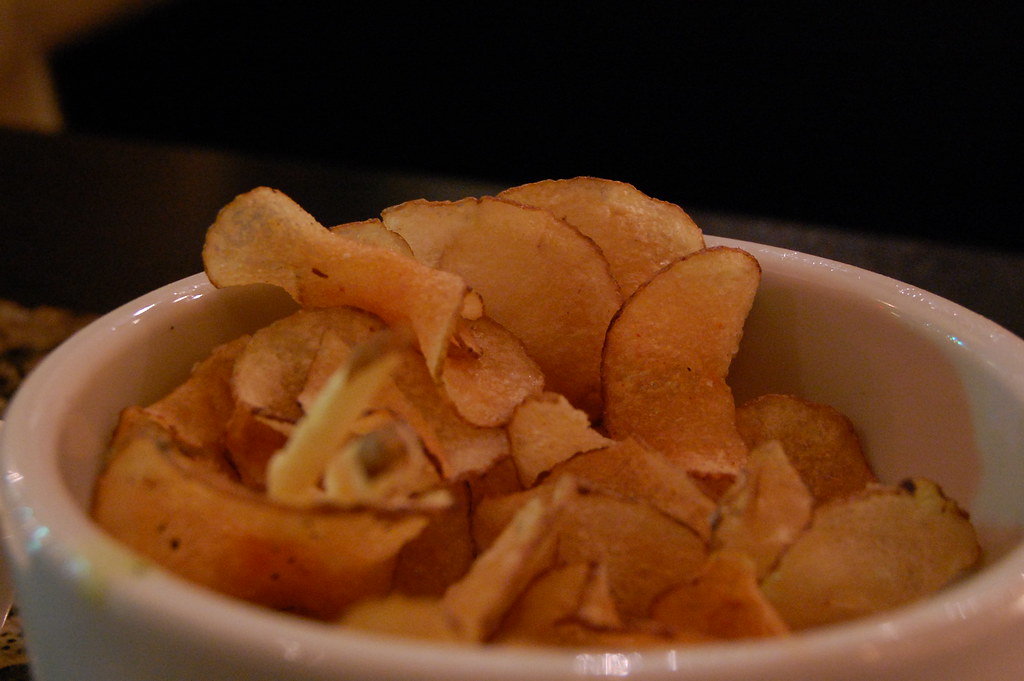
2. **High-Sodium Processed Crisps (e.g., Chips)**
Beyond the sugary drinks, another pervasive snack category that poses a considerable threat to liver health is high-sodium processed crisps, commonly known as chips. The American Liver Foundation confirms that consuming too much salt can have a negative effect on your liver function, a warning that should make us pause before indulging too freely in these convenient, crunchy treats.
A large bag of chips enjoyed in one sitting can definitely be a less-than-ideal snack choice, not only because of its high sodium content but also due to its general composition. The context highlights that it’s best to avoid processed, fried foods, in general. Chips often embody all three of these problematic characteristics: they are processed, they are fried, and they are typically laden with salt.
The liver plays a crucial role in maintaining the body’s fluid balance and chemical levels. An excessive intake of sodium places an undue strain on this system, potentially leading to fluid retention and increasing the workload on the liver to process and regulate these imbalances. This constant effort detracts from its other essential tasks, such as filtering waste products and processing nutrients effectively.
Furthermore, the “processed” and “fried” nature of chips introduces other compounds that challenge the liver. Frying foods at high temperatures can create unhealthy fats and advanced glycation end products (AGEs), which the liver must then metabolize and detoxify. These compounds contribute to the overall toxic load, making it harder for the liver to keep our bodies “running smoothly” and perform its intricate web of functions without strain.
For those seeking a satisfying crunch without compromising liver health, the advice to try some crudité – munching on raw vegetables – offers a much healthier alternative. These provide essential fiber, vitamins, and minerals, actively supporting the liver’s role in processing food and removing waste, unlike chips that burden it. Making this simple switch can contribute significantly to preserving your liver’s status as an organ MVP.

3. **Snacks Abundant in Added Sugars**
Beyond sugary beverages, a vast landscape of snack foods is characterized by an abundance of added sugars, which Healthline notes is a primary concern for liver health. These hidden sugars are not always obvious, often lurking in seemingly innocuous items, and their pervasive presence creates a constant challenge for an organ that is vital for metabolic regulation.
When we consume snacks laden with excessive added sugars, the liver is compelled to work overtime. Its role in processing food involves breaking down carbohydrates, but an overload of simple sugars forces it into overdrive, converting much of this excess into fat. This process, if sustained, can contribute to the accumulation of fat within the liver cells, potentially leading to non-alcoholic fatty liver disease (NAFLD), a condition that can impair the liver’s ability to perform its more than 500 vital functions.
Many of these sugary snacks are typically devoid of any substantial nutritional benefits, mirroring the issue observed with sodas. They offer caloric density without providing the essential vitamins, minerals, or fiber that genuinely support the liver’s intricate operations. This means the liver is burdened with processing an influx of substances that do not contribute to its health or aid in its restorative processes, essentially expending valuable energy without a positive return.
The liver’s intricate ability to balance the body’s chemical levels and processes is particularly sensitive to sugar intake. Consistent spikes from sugary snacks can disrupt this delicate equilibrium, making it harder for the liver to maintain stable blood sugar levels and manage energy metabolism. This constant effort can lead to a state of chronic stress for the organ, diminishing its efficiency over time.
Therefore, a conscious effort to identify and reduce consumption of snacks abundant in added sugars is a critical step towards protecting liver health. Choosing naturally sweet options like fruits, which also provide fiber and essential nutrients, can help the liver perform its essential tasks without the added strain of processing excessive, unbeneficial sugar.
Read more about: Smart Swaps for a Healthier You: 11 Ingredient Changes That Truly Transform Your Plate

4. **Snacks Packed with Artificial Chemicals**
Just as sugary beverages like soda are notorious for their “artificial chemicals,” a wide array of other snack foods similarly burdens the liver with synthetic compounds. These chemicals are frequently incorporated into processed snacks to enhance shelf life, texture, or even just to maintain a consistent appearance, but they come at a cost to our internal filtering system.
The liver, as one of our largest and most important organs, bears the brunt of detoxifying these foreign substances. Its fundamental role involves filtering out waste products and processing a multitude of compounds we ingest. When snacks are packed with artificial chemicals, the liver is faced with the demanding task of identifying, breaking down, and eliminating substances that are not naturally occurring, placing an additional and often unrecognized strain on its complex mechanisms.
This continuous exposure to artificial chemicals directly conflicts with the recommendation from The American Liver Foundation regarding “avoiding toxins” for proper liver function. In essence, these manufactured ingredients act as internal toxins, necessitating significant metabolic effort from the liver. This diverts crucial resources and energy that could otherwise be used for its vital functions, such as processing beneficial nutrients or regulating important bodily chemicals.
Furthermore, these artificial chemicals offer absolutely no nutritional support to the liver. They do not contribute to the liver’s ability to balance the body’s chemical levels or aid in its more than 500 varying functions. Instead, they present a processing challenge, forcing the liver to expend energy on compounds that provide no physiological benefit, making them a net negative for overall health and specifically for liver vitality.
Consciously choosing snacks with fewer ingredients and those that are recognizable and natural can significantly alleviate this chemical burden. By reducing the intake of snacks packed with artificial chemicals, we empower the liver to focus on its natural, essential tasks, ensuring it can continue to keep our bodies running smoothly and efficiently, as the organ MVP it truly is.
Read more about: Seniors, Listen Up: 5 Potato Chips You Absolutely Must Avoid for Optimal Health

5. **Items with Excessive Artificial Flavorings**
Expanding on the issues found in sugary drinks, many snack items extensively utilize “artificial flavorings” to create palatable tastes without relying on natural ingredients. These synthetic flavor compounds, while designed to tantalize our taste buds, introduce another layer of complexity and challenge for the liver, which is constantly striving to maintain our internal equilibrium.
The liver’s intricate system is designed to process food efficiently and balance chemical levels within the body. When faced with an influx of excessive artificial flavorings, it must contend with compounds that often lack a clear nutritional purpose. This means the liver is dedicating energy to metabolize substances that don’t provide any direct health benefits, diverting resources from its “multitude of incredibly essential tasks.”
These flavorings, much like other additives, contribute to the overall burden on the liver’s detoxification pathways. The continuous need to identify, process, and eliminate these non-nutritive compounds adds to the liver’s workload, making it less efficient at filtering out natural waste products or processing truly beneficial nutrients. This constant engagement with synthetic substances can lead to a state of chronic stress for the organ.
The context specifically highlights that soda includes “flavorings” as part of its problematic composition, contributing to “myriad issues with foods that cause liver damage.” This principle extends to other snack items where artificial flavorings are heavily used. These components fail to support the liver’s function in regulating dietary processes, instead creating additional demands that can impede its smooth operation.
Prioritizing snacks that derive their taste from natural ingredients, such as real fruits, vegetables, or whole grains, can significantly lighten the load on your liver. By minimizing exposure to items with excessive artificial flavorings, you help preserve the liver’s capacity to perform its core functions, ensuring it can continue to be the powerful, protective organ our bodies rely on.
Read more about: Unmasking the Sugar Traps: 14 Unexpected Foods Secretly High in Sugar (and How to Avoid Them)
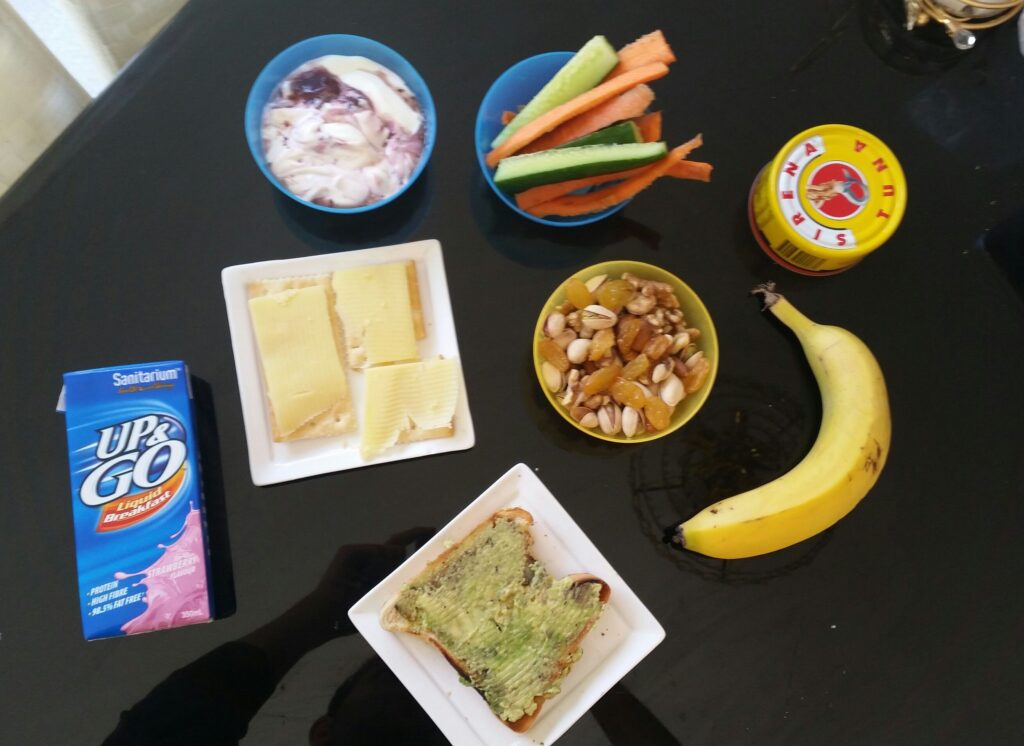
6. **Food Products with Unnecessary Additives**
Beyond specific artificial chemicals and flavorings, a broader category of concern for liver health involves food products loaded with “unnecessary additives.” These compounds are commonly integrated into snack foods for various purposes, including preservation, texturization, coloring, or as stabilizers, yet they rarely offer any nutritional upside for our bodies or our hardworking liver.
The liver’s fundamental role in filtering out waste products and processing various substances means it encounters every additive we consume. Each one, regardless of its intended function in the food, requires metabolic effort for the liver to recognize, process, and ultimately eliminate. A constant influx of these unnecessary compounds places a relentless demand on the liver’s filtering capabilities, potentially taxing its capacity.
This scenario aligns directly with The American Liver Foundation’s strong advice on “avoiding toxins” for proper liver function. While many additives are approved for consumption, their cumulative effect, especially when consumed regularly through snack foods, means the liver is continuously engaged in a detoxification process. This constant engagement prevents it from fully dedicating its resources to other crucial functions like nutrient metabolism and bile production.
Consider the “more than 500 varying functions” the liver performs to support your body. When it is perpetually occupied with breaking down and eliminating a stream of non-essential additives, its efficiency in other areas can be compromised. This makes it harder for the liver to keep our internal chemistry balanced and our bodies running smoothly, undermining its critical role as an organ MVP.
To mitigate this burden, a conscious choice to select snack foods with the shortest ingredient lists and those free from a multitude of unrecognizable additives is highly beneficial. By reducing the exposure to these unnecessary compounds, we allow the liver to conserve its energy for truly essential tasks, thereby safeguarding its long-term health and enhancing its ability to function optimally.
Read more about: Slash Your Grocery Bills in 2025: 14 Smart Ways to Eat Well for Less

7. **Snacks Devoid of Substantial Nutritional Benefits**
Many popular snack choices fall squarely into the category of being “devoid of any substantial nutritional benefits,” a characteristic highlighted as a significant issue for liver health. These snacks, while often convenient and tasty, essentially provide empty calories that do little to support the complex and energy-intensive operations of one of our body’s most important organs.
The liver relies heavily on a balanced and nutrient-rich diet to perform its extensive tasks. The American Liver Foundation specifically recommends eating “plenty of fruits and veggies, fiber-rich whole grains, poultry, and fish.” Snacks lacking these essential components mean the liver is processing food without receiving the necessary cofactors, antioxidants, and building blocks it needs to execute its more than 500 varying functions efficiently.
When we consume snacks that offer little to no nutritional value, the liver still has to process the sugars, fats, and refined carbohydrates they often contain. This creates a scenario where the liver is expending energy without receiving any beneficial return, leading to a net negative impact. It’s akin to running a high-performance engine on low-grade fuel – it works, but not optimally, and with potential for long-term wear and tear.
Such snacks directly impede the liver’s ability to balance the body’s chemical levels and process food effectively. Without adequate nutritional support, the liver struggles to maintain metabolic equilibrium, manage detoxification, and produce bile efficiently. This lack of support means the liver cannot keep our bodies running smoothly as it’s designed to, making its essential tasks more difficult and demanding.
Therefore, making a conscious shift away from snacks devoid of substantial nutritional benefits is a crucial step towards robust liver health. Prioritizing nutrient-dense options ensures the liver receives the support it needs to function as the organ MVP, rather than being burdened by processing substances that offer no genuine contribution to its vitality. It’s about fueling your body with purpose, not just calories.
Read more about: If You Have High Cholesterol: 15 Foods to Rethink for Better Heart Health

8. **Deep-Fried Doughnuts and Pastries**
These seemingly innocent morning treats, or anytime delights, are a major concern for liver health, primarily due to their triple threat of excessive unhealthy fats, copious amounts of added sugars, and highly refined carbohydrates. The American Liver Foundation consistently advocates for a balanced diet to support liver function, yet doughnuts and pastries represent a significant deviation from these recommendations, placing considerable strain on the organ responsible for processing nutrients and toxins alike.
When the liver encounters the high levels of saturated and trans fats prevalent in deep-fried pastries, it faces a monumental task. These unhealthy fats are particularly difficult for the liver to metabolize efficiently. Over time, consistent intake can lead to the accumulation of fat within liver cells, a key factor in the development of non-alcoholic fatty liver disease (NAFLD). NAFLD can progressively impair the liver’s ability to perform its “multitude of incredibly essential tasks,” including balancing chemical levels and producing vital proteins.
Moreover, the high sugar content found in these snacks further exacerbates the problem. As previously discussed, excess sugar forces the liver to convert glucose into fat, contributing to the very same fatty buildup. The refined flours used in most pastries also offer minimal fiber or essential nutrients, meaning the liver is processing calorically dense food that provides little to no beneficial support for its own cellular health or metabolic demands. It’s an empty calorie cycle that works against the liver.
Choosing alternatives like whole-grain toast with a small amount of fruit, or a piece of fruit itself, can provide sustained energy and vital nutrients without overwhelming the liver. Making such a conscious choice empowers your liver to focus on its critical functions, like detoxification and nutrient processing, instead of struggling to manage an onslaught of unbeneficial fats and sugars. This proactive approach reinforces the liver’s role as an “organ MVP.”
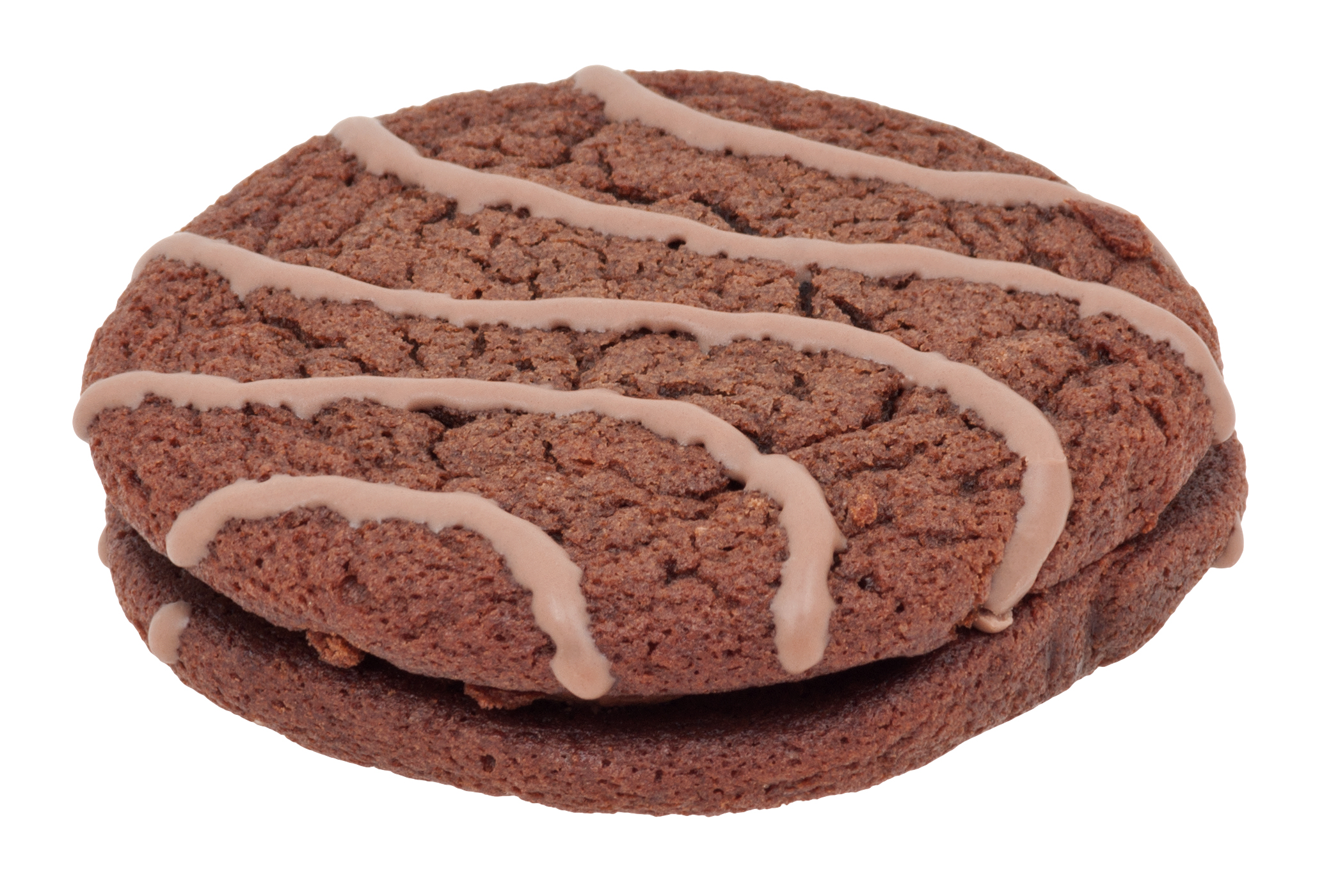
9. **Highly Processed Snack Cakes and Cookies**
The allure of convenience and a sweet pick-me-up often leads us to highly processed snack cakes and cookies, but these items are far from harmless when it comes to liver wellness. Similar to deep-fried pastries, these commercial confections are engineered with a combination of unhealthy fats, an abundance of added sugars, and various artificial ingredients that collectively challenge the liver’s capacity to maintain optimal function.
Many commercially produced snack cakes and cookies rely on partially hydrogenated oils or other sources of trans fats and saturated fats to achieve their desired texture and shelf life. The liver struggles immensely with these types of fats, which can lead to inflammation and oxidative stress, compounding the risk for liver damage and the progression of fatty liver disease. The “more than 500 varying functions” of the liver, including its role in metabolism, become compromised under such a dietary burden.
Beyond the fat content, these snacks are notorious for their high levels of added sugars and often include artificial flavorings and preservatives. As Healthline points out, anything packed with sugar is best avoided. The liver’s constant effort to metabolize these sugars, converting them into fat, takes a toll. Additionally, processing a continuous stream of artificial compounds, as noted with “snacks packed with artificial chemicals,” diverts the liver’s energy from crucial natural detoxification processes.
For individuals seeking a satisfying sweet treat, opting for homemade whole-grain cookies with reduced sugar and healthy fats (like those from avocados or nuts), or even a small portion of dark chocolate, can be a significantly kinder choice for the liver. Such mindful substitutions provide a more favorable nutrient profile, allowing the liver to function more effectively without the cumulative impact of heavily processed ingredients and excessive unbeneficial compounds.
Read more about: Unlock Affordable Wellness: Your Comprehensive Guide to Healthy Home Cooking Without Draining Your Wallet
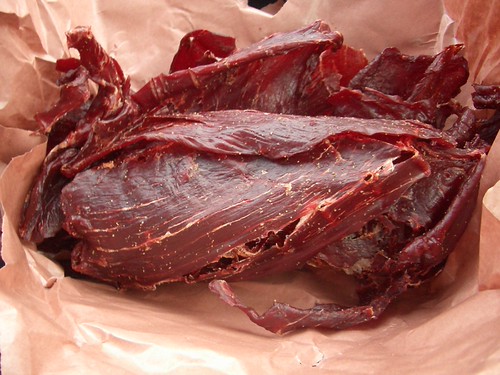
10. **Cured and Processed Meats (e.g., Jerky, Deli Meat Snacks)**
While often marketed as convenient protein sources, cured and processed meats, such as jerky or pre-packaged deli meat snacks, present a distinct set of challenges for liver health, primarily due to their remarkably high sodium content and the presence of various preservatives. The American Liver Foundation unequivocally states that “consuming too much salt can have a negative effect on your liver function,” a warning that directly applies to these often-overlooked snack offenders.
The liver plays a pivotal role in maintaining the body’s fluid balance and filtering waste products. When overloaded with excessive sodium from snacks like jerky, it faces increased pressure to process and excrete this mineral, contributing to fluid retention and potentially elevating blood pressure. This constant compensatory effort taxes the liver’s resources, drawing energy away from its other essential duties, such as bile production and nutrient processing, which are crucial for overall bodily chemistry.
Furthermore, many processed meats contain nitrates and nitrites as preservatives, which, upon digestion, can convert into N-nitroso compounds, known carcinogens. While the liver is equipped to detoxify harmful substances, a continuous barrage of these compounds demands significant metabolic effort. This relentless processing adds to the liver’s workload, undermining its capacity to efficiently perform its “multitude of incredibly essential tasks” and manage its “more than 500 varying functions.”
Instead of reaching for sodium-laden jerky, consider alternative protein-rich snacks such as plain roasted nuts, hard-boiled eggs, or even a small serving of grilled chicken breast. These options provide necessary protein without the detrimental levels of salt and artificial preservatives, thereby supporting the liver’s vital filtering and processing capabilities. Making these informed choices helps protect your liver’s status as the body’s indispensable “organ MVP.”

11. **Microwave Popcorn with Artificial Butter Flavoring**
The convenience of microwave popcorn often belies its potential harm to liver health, particularly when it comes laden with artificial butter flavoring and excessive salt. This popular snack category often contains a cocktail of concerning ingredients, including unhealthy fats, diacetyl (a chemical historically linked to lung disease, and whose metabolic impact on the liver is an additional burden), and high levels of sodium, creating a complex challenge for the liver’s detoxification pathways.
The fats used in many microwave popcorn varieties often include saturated fats or even partially hydrogenated oils, which contribute to the accumulation of liver fat and increase inflammation. As the liver works tirelessly to “filter out waste products and process food,” these unhealthy fats demand significant metabolic effort, potentially diverting resources from other critical functions. The context has consistently highlighted that processed and unhealthy fats are detrimental.
Beyond the fats, the artificial butter flavorings themselves, along with other “artificial chemicals,” present a detoxification challenge. While the direct impact of individual chemicals like diacetyl on the liver is a subject of ongoing research, the cumulative effect of processing numerous synthetic compounds adds to the liver’s toxic load. The liver must expend precious energy to identify, break down, and eliminate these non-natural substances, in contrast to the ease with which it processes whole, natural foods.
For a healthier popcorn experience, consider air-popped popcorn seasoned lightly with natural spices, nutritional yeast, or a tiny drizzle of olive oil. This simple switch drastically reduces exposure to unhealthy fats, artificial chemicals, and excessive sodium, allowing your liver to function more efficiently and with less strain. It’s an actionable step towards “avoiding toxins” and empowering your liver to maintain its crucial role in overall body chemistry.
Read more about: Are You Eating Poison? Unmasking 14 Everyday ‘Healthy’ Foods That Might Be Hiding More Than You Think!

12. **Creamy Coffee Drinks with Syrups and Toppings**
While a morning coffee ritual can be a healthy habit, the popular trend of elaborate, creamy coffee drinks—especially those loaded with syrups, whipped cream, and sugary toppings—transforms a simple beverage into a liver-stressing snack. These concoctions are potent sources of excessive added sugars, unhealthy fats, and often a host of artificial flavorings and additives, all of which contribute to the liver’s significant workload, mirroring issues seen with sugary beverages and snack cakes.
The sheer volume of added sugars in these drinks is a primary concern. A single large, flavored coffee drink can easily exceed the recommended daily sugar intake, leading to rapid spikes in blood glucose. The liver must then work overtime to process this sugar, converting the excess into fat, a process that, when repeated regularly, significantly contributes to the risk of non-alcoholic fatty liver disease. This directly impacts the liver’s “ability to balance the body’s chemical levels and processes.”
Furthermore, the creamy components, like whole milk, heavy cream, or artificial creamers, often contribute unhealthy saturated fats to the mix. These fats, combined with the sugars, create a calorically dense load that the liver must diligently metabolize. The presence of “artificial flavorings” and other “unnecessary additives” in syrups and toppings further complicates the liver’s task, requiring it to dedicate resources to substances that offer no nutritional benefit but demand extensive detoxification efforts.
To enjoy your coffee without compromising liver health, opt for black coffee, or add a splash of unsweetened plant-based milk or a small amount of low-fat dairy. If you desire sweetness, a tiny amount of natural sweetener or a sprinkle of cinnamon can offer flavor without the detrimental effects. Making these adjustments can significantly reduce the burden of processing an “abundance of sugar” and “unhealthy fats,” helping your liver stay efficient and resilient.
Read more about: Beyond the Buzz: 10 Popular Coffee Orders That Are Secretly Sabotaging Your Health Goals

13. **Refined Carbohydrate Snack Bars (Granola Bars Often)**
Despite their often healthy-sounding names, many refined carbohydrate snack bars, including a surprising number of granola bars, are stealthy offenders against liver health. These bars frequently hide significant amounts of added sugars, unhealthy fats, and highly processed grains, while often being “devoid of any substantial nutritional benefits” like true fiber or whole food components. They present themselves as convenient fuel but can actually hinder liver function.
The primary issue stems from the combination of high sugar content and refined carbohydrates. These quick-release energy sources cause rapid blood sugar spikes, forcing the liver into overdrive to process the glucose and convert any excess into fat. This repeated process is a direct contributor to fatty liver development and burdens the liver’s “more than 500 varying functions” related to metabolic regulation and energy management.
Moreover, many snack bars contain unhealthy fats, such as palm oil, soybean oil, or other processed vegetable oils, which can be inflammatory and challenging for the liver to metabolize efficiently. The “heavily processed ingredients” aspect means these bars often lack the natural antioxidants and protective compounds found in whole grains, fruits, and nuts. Consequently, the liver is left to process a calorie-dense item without the supportive nutrients it needs to perform its duties effectively.
When choosing a snack bar, it’s crucial to read labels carefully. Look for bars with minimal added sugar, a high fiber content from whole grains and nuts, and healthy fats. Better yet, consider a handful of actual nuts and seeds, a piece of fruit, or plain yogurt with berries. These whole food options provide genuine nutritional support, ensuring your liver gets the building blocks it needs rather than an additional processing challenge.
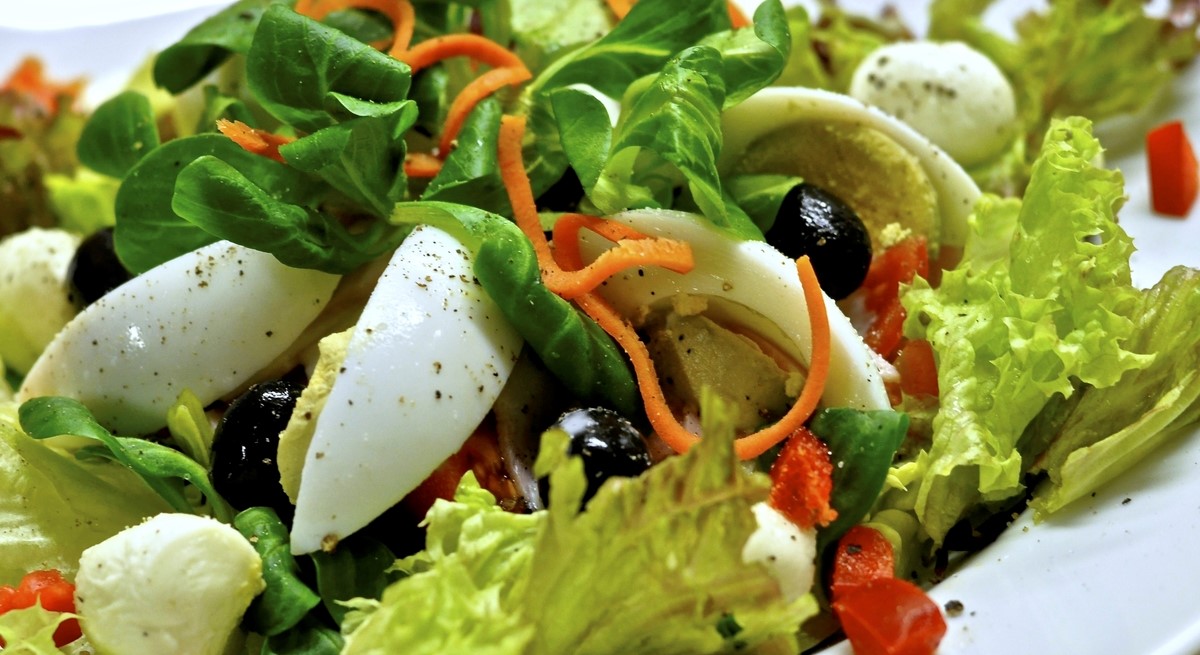
14. **Heavy Sauces and Dips (e.g., Store-bought Ranch, Creamy Cheese Dips)**
While not always consumed as standalone snacks, heavy sauces and dips often accompany other snack foods, significantly amplifying their liver-harming potential. These items are frequently brimming with unhealthy fats, excessive sodium, and a multitude of artificial preservatives and flavorings, creating a concentrated dose of compounds that collectively challenge the liver’s ability to “filter, process, and maintain overall body chemistry,” as highlighted in the article’s outline.
Consider the typical store-bought creamy dips. They are often made with high levels of unhealthy saturated and trans fats from oils, cream, and cheese. The liver must work intensely to metabolize these fats, a process that can lead to inflammation and fat accumulation within the liver, increasing the risk of NAFLD. This constant engagement with difficult-to-process fats detracts from the liver’s other crucial functions, making it harder to “keep our bodies running smoothly.”
Furthermore, these sauces and dips are almost universally high in sodium. As The American Liver Foundation confirms, “consuming too much salt can have a negative effect on your liver function.” The liver is instrumental in regulating fluid balance, and an overload of sodium places significant stress on this system, forcing the liver to expend extra energy to process and excrete the excess. This exacerbates the workload of an organ already burdened by unhealthy fats and processed ingredients.
Lastly, the presence of numerous “unnecessary additives” and “artificial flavorings” in these manufactured dips and sauces adds another layer of detoxification demand on the liver. These non-nutritive compounds require metabolic resources that could otherwise be used for essential functions. Opting for homemade dips using Greek yogurt or avocado, seasoned with fresh herbs and spices, offers a vastly healthier alternative, providing beneficial nutrients without the liver-straining ingredients.
Our exploration of these common snack culprits underscores a vital truth: every bite we take profoundly impacts our liver, this unsung hero quietly performing over 500 functions to keep us thriving. By consciously choosing to swap out these liver-stressing items for nutrient-dense, whole-food alternatives, we empower our liver to operate at its peak. It’s not just about avoiding the “worst” offenders; it’s about embracing proactive choices that nourish and protect this indispensable organ, ensuring it remains the true MVP of our internal ecosystem for years to come. Let’s commit to chewing wiser, feeling lighter, and truly honoring our liver’s extraordinary resilience.



